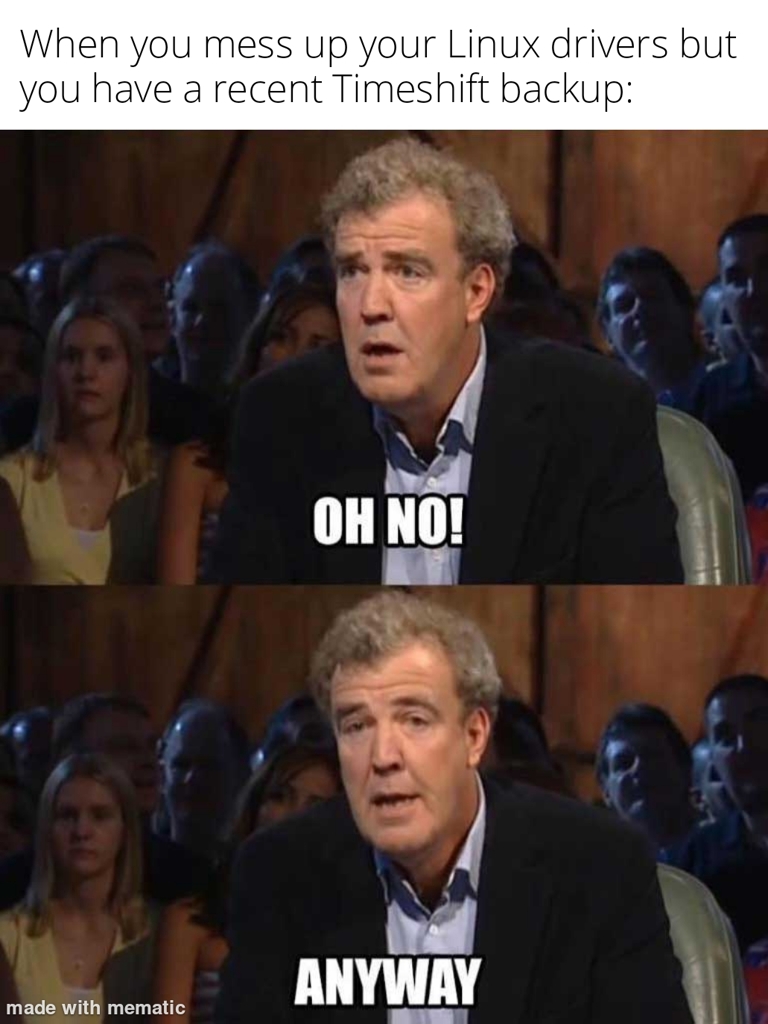this post was submitted on 28 Oct 2023
483 points (95.8% liked)
linuxmemes
21263 readers
825 users here now
Hint: :q!
Sister communities:
- LemmyMemes: Memes
- LemmyShitpost: Anything and everything goes.
- RISA: Star Trek memes and shitposts
Community rules (click to expand)
1. Follow the site-wide rules
- Instance-wide TOS: https://legal.lemmy.world/tos/
- Lemmy code of conduct: https://join-lemmy.org/docs/code_of_conduct.html
2. Be civil
- Understand the difference between a joke and an insult.
- Do not harrass or attack members of the community for any reason.
- Leave remarks of "peasantry" to the PCMR community. If you dislike an OS/service/application, attack the thing you dislike, not the individuals who use it. Some people may not have a choice.
- Bigotry will not be tolerated.
- These rules are somewhat loosened when the subject is a public figure. Still, do not attack their person or incite harrassment.
3. Post Linux-related content
- Including Unix and BSD.
- Non-Linux content is acceptable as long as it makes a reference to Linux. For example, the poorly made mockery of
sudoin Windows. - No porn. Even if you watch it on a Linux machine.
4. No recent reposts
- Everybody uses Arch btw, can't quit Vim, and wants to interject for a moment. You can stop now.
Please report posts and comments that break these rules!
founded 1 year ago
MODERATORS
you are viewing a single comment's thread
view the rest of the comments
view the rest of the comments

How is this different than a regular backup? Not salty, just curious.
I believe it's using a feature built-in directly in the filesystem.
I'm just curious if it's possible to browse individual snapshots like in MacOS Time Machine and fetch individual files out.
Now mind you, everything I write might be wrong, I am out of my depth here.
But as I understand a BTRFS snapshot is simply a (subvolume in which you will find) copy of the table that points to the actual files or, rather, blocks on your drive. As long as a table exists that points to a block, this block will persist.
The nature of BTRFS is Copy-on-Write so in your active snapshot, when you modify a file / block, a copy of it is created with the new version, referencing this new block on the filesystem table.
This is why BTRFS snapshots are fast and take little space by themselves, you do not need to actually copy all the data at the moment of creating the backup, rather when the data is modified and only that data.